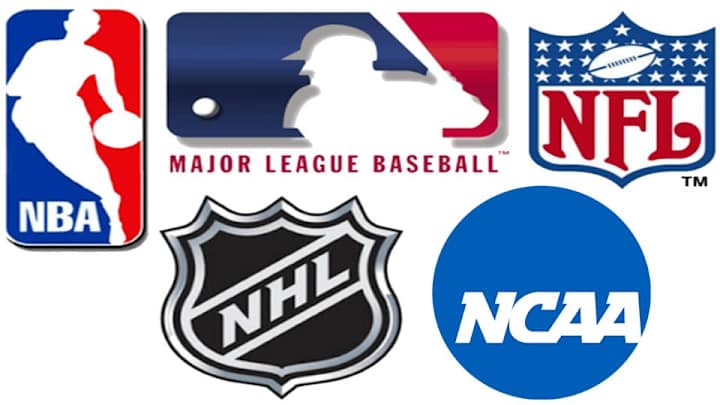Does the Return of College Sports Differ from the Pros?

The NCAA likes to refer to its players as "student-athletes," so does that mean they should be handled differently from their professional countarparts as they prepare to return to the playing field amid the era of COVID-19? Or should the NCAA follow the lead of the NBA, NHL, MLB and NFL and head into the fall season full speed ahead?
Those are questions that are being asked at all across the country these days, from the NCAA's headquarters in Indianapolis to every school big and small as athletes return to campus for "voluntary" workouts and the number of positive tests continue to grow.
And there are no simple answers.
On one hand, there's enormous financial stake to consider with the prospect of literally billions of dollars lost if football, in particular, isn't played. With or without fans in the stands.
That would be a catastrophic scenario that wouldn't just have a negative impact on football and basketball. Because those sports pay most of the bills for their entire athletic department, the loss of the 2020 season -- on top of the monitary hit already taken by the cancellation of the NCAA men's basketball tournament would likely lead to the elimination of some, if not all nonrevenue sports programs.
We're already starting to see that happen now.
The dilemma that faces NCAA president Mark Emmert, conference commissioners and individual college administrators such as NC State athletic director Boo Corrigan is finding a way to balance that financial need to play while at the same time protecting the health and safety of the "student-athletes" under their supervision.
There's clearly a different dynamic from the one guiding the decision makers at the professional level.
For one thing, college athletes aren't getting paid millions of dollars to put their health at risk. For another, they can't be quarantined in a "bubble" to isolate them from the outside world the way the NBA, NHL and MLB plan to do with their players, since as "student-athletes," they must still go to class and interact with other classmates around campus.
That is assuming there will be classmates on campus, yet another factor that must be taken into consideration before allowing college sports to return.
In the video above, Sports Illustrated host Robin Lundberg approaches the subject with Chaunte'l Powell of Gamecock Digest and Glen West of LSU Country to get their thoughts on how programs are proceeding and whether the standard for college sports to be played should be different than those for pro sports.
Here is a sampling of what some other team site publishers from the SI Network had to say:
Brooks Austin, DawgsDaily:
"The answer to this question clearly begins with the absence of compensation for collegiate athletes, but to me, it's much more of a conversation about the difference in the protection of the athletes between college and professional sports. At least at the professional level, there's at least enough funding to test, trace, and treat each individual case along with providing an equal level of protection for all of the athletes involved. On the collegiate level, however, every program has a different method of taking precautionary measures along with a different level of funding."
Ahmed Ghafir, AllTerrapins:
"There’s a distinct difference to me. Professional athletes have a contractual agreement to play the sport and in return, they’re largely compensated with a pair of commas for their annual salary. There is a stronger sense of individual responsibility in pro sports to act as responsible adults. College…not so much. The responsibility ultimately sits with the university when it comes to student-athletes. The difference between reopening college versus professional sports stems from the decision for colleges as a whole to reopen this fall. University officials are partnering with state government authorities as they determine their respective plans to reopen schools, but the fate of college sports lies in the ultimate decision to approve reopening each school. In no circumstance can I see college sports continuing if all students don’t return to campus—otherwise, doesn’t that defy the definition of a student-athlete? Professional teams also have the ability to reopen or close their respective facilities if they choose, just as the Denver Nuggets did on Tuesday, whereas college teams can’t just close their facilities with a campus full of students. There’s more risk to reopening college than professional sports."
John Hoover, AllSooners
"College and professional sports should have different standards for returning to play from the pandemic. The most fundamental basis for this is that student-athletes are part of a far larger campus community and cannot be sequestered to the extent a professional sports franchise can sequester its players. As part of the everyday campus community, and as athletes who also have classroom responsibilities, their exposure will be far greater. Also, the athletes everyone thinks of in college—football and basketball players—frequently socialize with athletes from other sports. College sports is just too large, too broad to hold to the same standards as professional sports."
You can follow us for future coverage by clicking "Follow" on the top righthand corner of the page. Also be sure to like us on Facebook & Twitter:
Facebook -- ACC Insider
Twitter -- @WolfpackMaven and Brett Friedlander at @BFriedACC
